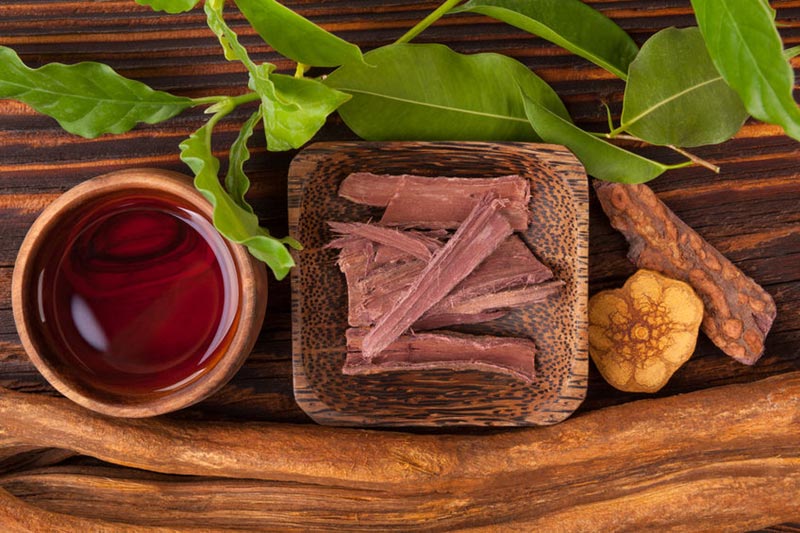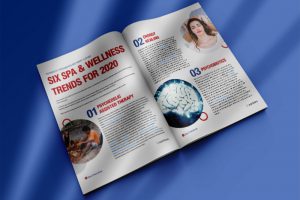
Riding in on the tails of the cannabis trend, psychedelic assisted therapy is a wellness trend to watch in 2020.
People have been calling cannabis a “gateway drug” for as long as we can remember, and in the case of wellness, it looks like they’re right.
In the past few years, cannabis has gone through various states of decriminalization around the world and the cannabis compound cannabidiol (CBD) has pretty much taken over spa, wellness, skincare, and more. Now we’re seeing an uptick in attention around hallucinogenic substances like psilocybin, DMT, LSD, and Ibogaine.
Researchers are becoming increasingly interested in psychedelics
As a group, psychedelic drugs are a class that triggers psychedelic experiences, causing changes in thought and visual audio perception, and altered state of consciousness. And researchers are becoming increasingly interested in their potential applications as treatments for mental health conditions such as depression, schizophrenia, and dementia. This is psychedelic assisted therapy.*
Psilocybin, found in more than 200 species of mushrooms
Psilocybin, for example, is the psychedelic compound found in more than 200 species of mushrooms, known as “magic mushrooms.” The Global Wellness Institute actually tagged these as a trend to watch as far back as 2018, stating:
“Brain resetting” magic mushrooms will start to emerge from underground: more people will microdose them as creativity and brain boosters (a Silicon Valley “start-up” practice now spreading around the world). And, yes, magic mushroom retreats (like MycoMeditations) will keep popping up in places where legal (whether Jamaica or the Netherlands), where the “trip” gets combined with increasingly luxe wellness experiences. And we’ll see movement on the legalization front, making this magic mushroom “moment” reminiscent of the early days of the cannabis-as-wellness trend.”
Microdosing (taking minute quantities, that can measure about one tenth of a full dose, of a drug) psychedelics is said to have become a fairly well established trend among Silicon Valley tech people and among other communities. It’s said to be linked to improved mood, increased energy and focus, reduced anxiety, and enhanced creativity. (We are not recommending you try this at home.)
Johns Hopkins Center for Psychedelic and Consciousness Research
Lysergic Acid Diethylamide (LSD) and Psilocybin are among the substances being studied at Johns Hopkins University’s Center for Psychedelic and Consciousness Research, which was recently established with $17 million in private donations. The Center will be the first of its kind in the United States, while the Centre for Psychedelic Research at Imperial College London, which opened in 2019, is said to be the first in the world.
DMT, the spirit molecule
Another compound piquing the interest of researchers is DMT (N,N-Dimethyltryptamine), the chemical substance known as “the spirit molecule,” used in ayahuasca, a South American entheogenic plant brew made with the Banisteriopsis caapi vine. The vine is commonly found in the Amazon Basin. There’s evidence that both psilocybin and DMT have been used as spiritual medicines for thousands of years.
Researchers at Johns Hopkins are also studying Ibogaine, a naturally occurring psychoactive substance found in plants in both central and coastal Africa, as a potential treatment for drug addiction.
Ibogaine as a treatment for addiction
And Toronto-based start up MindMed is undertaking clinical trials of medicines based on psychedelics. According to a media release the neuro-pharmaceutical company discovers, develops and deploys psychedelic- inspired medicines to improve health, promote wellness and alleviate suffering. MindMed is developing two categories of medicines based on psychedelic substances: Hallucinogenic therapies and non-hallucinogenic therapies, and the company’s immediate priority is “to address the opioid crisis by developing a non-hallucinogenic version of the psychedelic compound ibogaine.” MindMed raised $6.2 million in investments over the summer of 2019.
Expect to hear more about psychedelic compounds and psychedelic assisted therapy in the coming months and years.
*Psychedelic assisted therapy is conducted under the guidance of experts and psychedelic substances of any sort should not be taken recreationally.
 Want to see more spa & wellness trends we’re keeping our eye on in 2020? Sign up for Spa Executive’s newsletter and download the free report! CLICK HERE >>
Want to see more spa & wellness trends we’re keeping our eye on in 2020? Sign up for Spa Executive’s newsletter and download the free report! CLICK HERE >>
Spa Executive magazine is published by Book4Time, the world’s most innovative spa, salon, wellness, and activity management software. Learn more at Book4Time.com.



